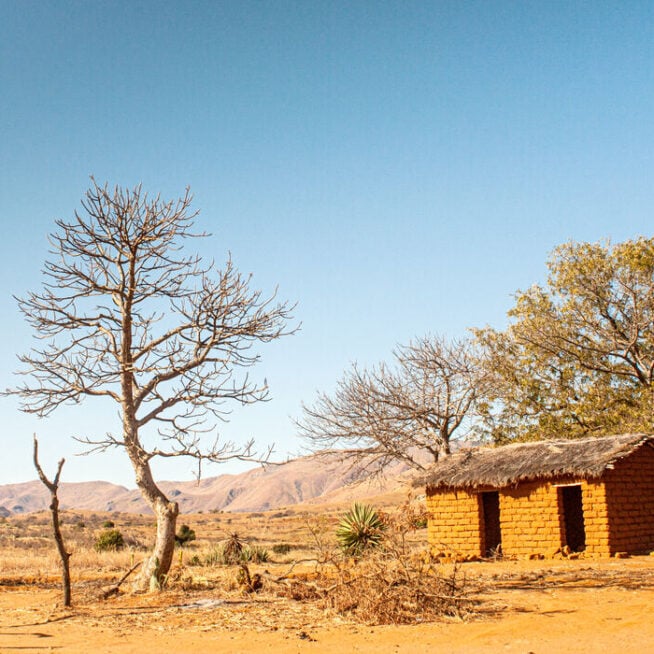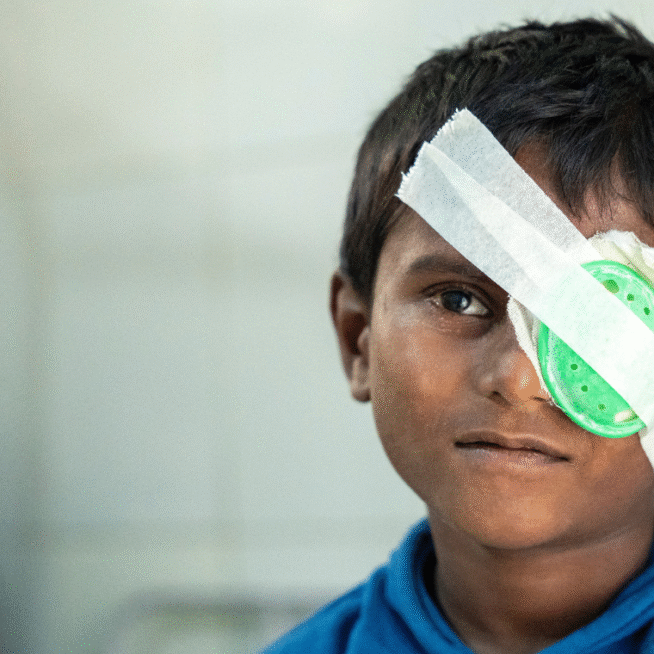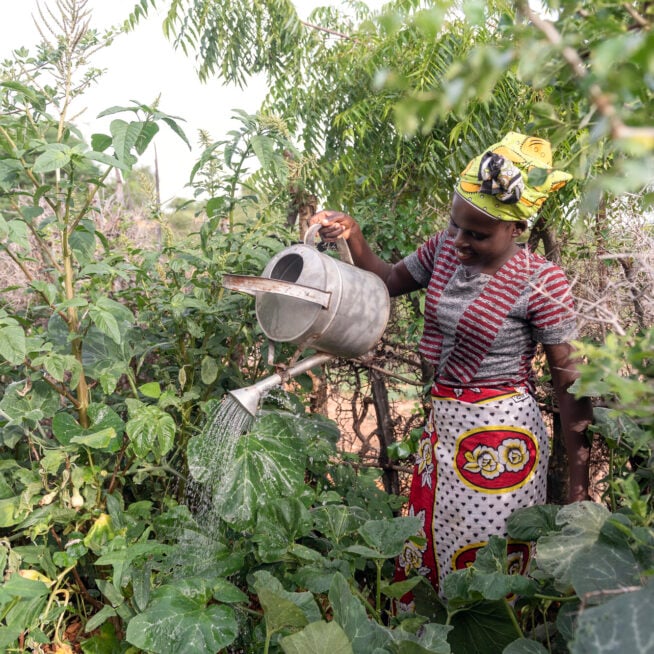Want to transform lives with us? Stay in touch and hear about our news, activities and appeals by email!
Second chance at education: A game changer for girls with disabilities
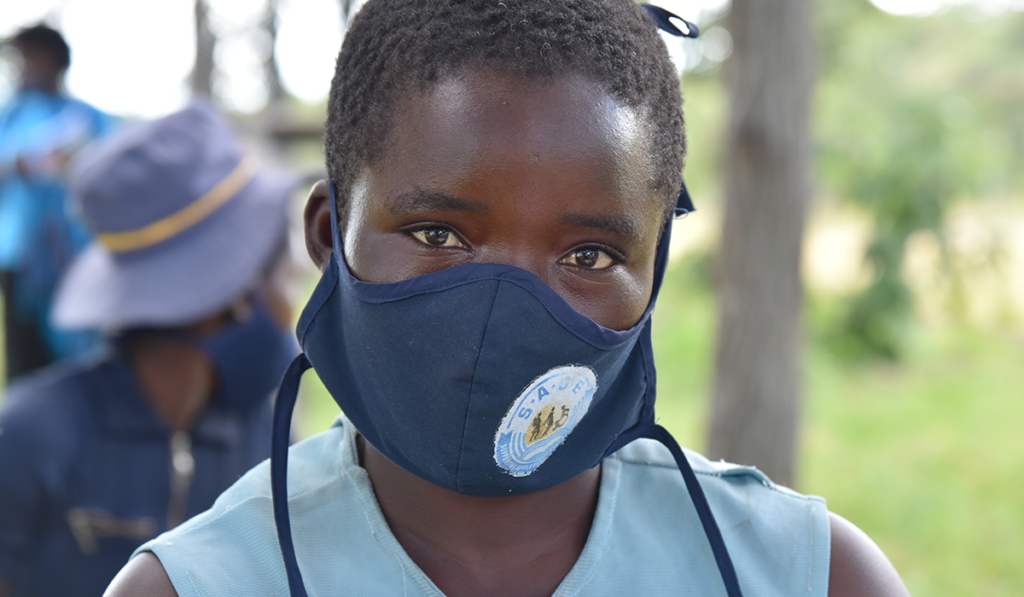
The Supporting Adolescent Girls’ Education (SAGE) project (open in new tab) targets adolescent girls’ who have never been to school or dropped out of school due to poverty, child-marriage and disability. These and other barriers are mitigated through a community-based non-formal education programme which ensures that the hardest to reach girls are not left behind when it comes to accessing basic education. SAGE is funded by UKAid through the Girls’ Education Challenge (GEC). It creates acceptance and inclusivity for girls living with disabilities – like Sibongile and Susan.
Sibongile
“I am very happy. I never miss a day of school. The SAGE program has given me a new life that I never imagined possible. I am learning how to read, write, count and to communicate with others in my community.”

16-year old Sibongile, who lives in the outskirts of Bulawayo in a peri-urban community is delighted to be part of the SAGE program that has given her a second chance at education and life, after being turned away from primary school when she was in Grade Two because she was hard of hearing. “I didn’t understand the reason why I was stopped from going to school when I was younger. All I remember was growing up a very lonely life. It was just me and my aunt who takes care of me,” said Sibongile. “My life changed when my aunt met Sithembinkosi, a SAGE Learning Assistant who was mobilising girls in this district to be part of an education program. My aunt immediately brought me for enrolment,” said Sibongile.
Sithembinkosi, who is passionate about identifying the most marginalised girls into the program, went door to door in her community, seeking girls like Sibongile who deserved another chance at education in the hope of breaking the poverty cycle in their lives for them to have a brighter future. As soon as Sibongile was signed up for the SAGE program, the project facilitated a medical assessment to find out why she was hard of hearing. It was discovered that she was born with this condition and an operation to attempt to correct this anomaly was both expensive and risky. CBM, an implementing partner in the SAGE consortium, was able to provide her with a hearing aid that has improved Sibongile’s hearing capability and has enabled her to fully participate in lessons as well as interact with her peers during learning sessions.
“Before I joined the SAGE project, I felt neglected and lived an excluded life. l couldn’t make sense of the world around me because communication with others was difficult because I could not read or write and I was hard of hearing. I had no life and no future,” said Sibongile. “But now, I am very happy. I never miss a day of school. The SAGE program has given me a new life that I never imagined possible. I am learning how to read, write, count and to communicate with others in my community. I feel fully accepted by my teachers and I now have friends. I now have big dreams of learning skills that will enable me to earn a living one day and take care of my aunt in old age”, concluded Sibongile, with a confident smile.
Susan
“I am not scared of walking here because I know I am walking to attain my dream of getting an education. The hub is a safe and free space for me and I have also made friends here.”
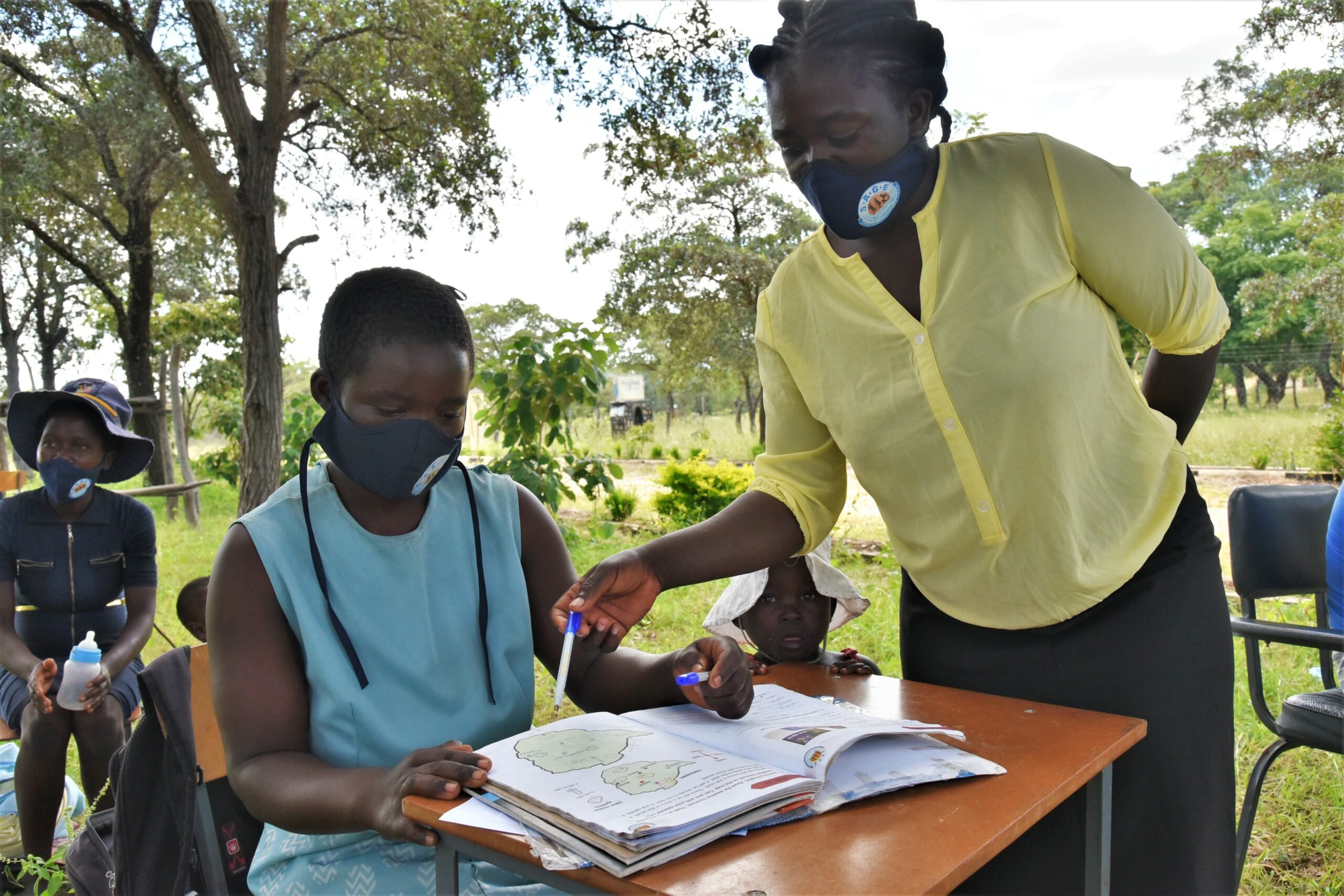
Susan (19), like any other child, made her first attempt to education a decade and a half ago as she enrolled for pre-school. Unfortunately, her experience with pre-school education did not last long as her disability forced her to drop out of school. Due to her disability, Susan, who is unable to use her right arm and leg, had to watch her peers going to school while she stayed at home with her grandmother. Her dreams and hopes were shattered. Hailing from Mutoko, a community that depends heavily on market gardening, Janet’s grandmother used to leave her alone at home in the morning to go to the gardens. However, watching children of her age going to school was hard and depressing to the extent of making her grandmother to take her to the gardens. A routine that Susan never imagined was going to be a part of her life forever.
“I used to feel sad when I saw other girls going to school and I was at home. My grandmother used to leave me at home most of the time until she encouraged me to follow her to the gardens crawling. My disability hindered me from attending school and doing other basic household chores.” Fortunately for her, she can now stay on top of her dream after receiving a second chance at education from the SAGE project in 2019.
Today, Susan, who was not able to write her name before joining the project; has even mastered the art of using her left hand to write – which is naturally not her stronger hand – and is now able to write and work with basic numbers. Intending to venture into sewing business, Susan is optimistic that the SAGE project will equip her with the necessary skills and knowledge to successfully launch her sewing project dream.
“Due to my disability, I was not able to write but ever since I joined this class a lot has changed. I can now write my name and still eager to learn numbers. This will help me in my sewing business which I intend to set up with help of the SAGE Master Crafts initiative.”
Susan, who is now a married mother of one, attends SAGE learning sessions together with her 3-year old daughter Ruvimbo at the SAGE community hub in Mutoko district. She is one of the 72 adolescent girls and young mothers who are enrolled at the hub and participate in Champion of Girls’ Education (CoGE) and Accelerated Learning (ATL) sessions and attend small group sessions. Even though the hub is a walking distance from her home and proves to be a struggle for Janet, she feels safe during small group learning sessions and she has even made some friends with some learners from the hub. “I am not scared of walking here because I know I am walking to attain my dream of getting an education. The hub is a safe and free space for me and I have also made friends here. So, we go home together”
After learning sessions, at home Susan’s husband supports her quest to get basic education by assisting her with doing her homework. Her husband is also the one who encourages her to regularly attend SAGE learning sessions. “My husband supports me and this motivates me a lot. He helps me with my homework and we take time to read some of the SAGE books together.”
Tjandapiwa
Tjandapiwa (17), from the Bulilima district, is an avid learner and has made phenomenal progress in her literacy journey after dropping out of school in Grade 3 following the passing on of her father, who was responsible for paying her school fees. “I can now read, write and count – something which I never really grasped when I was at school many years ago. What I really enjoy now is learning skills such as pottery, hairdressing and beadwork that will help me earn a livelihood to raise my six month old child,” said Tjandapiwa.
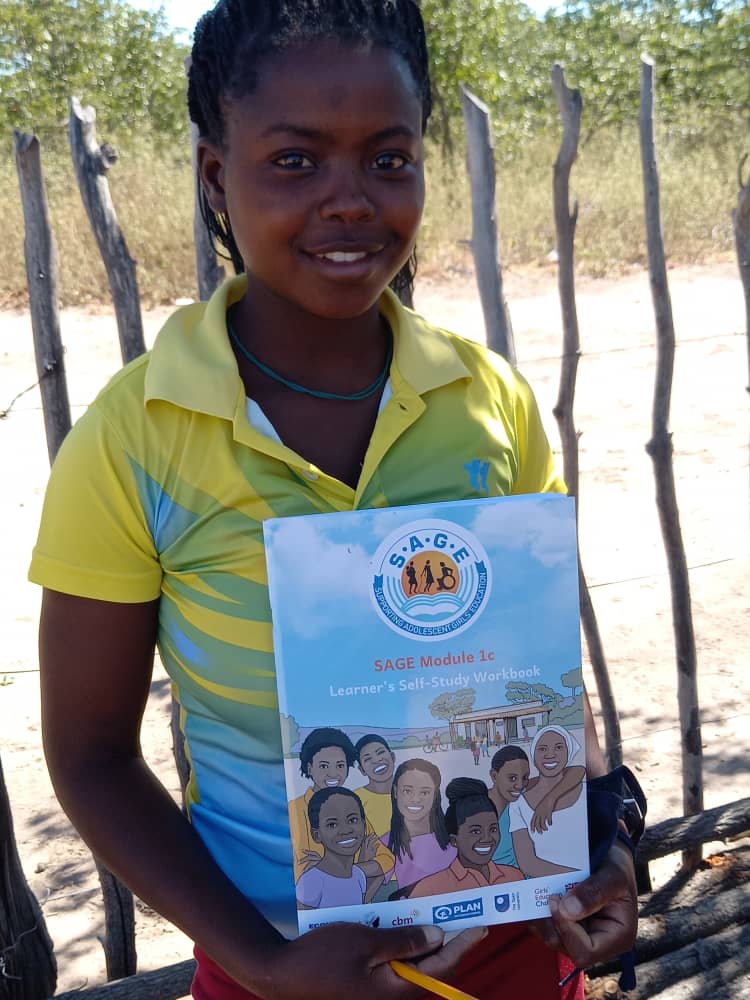
She added that, “what I also love about the learning hubs is that they are very accommodating of our different circumstances. I was able to continue with my studies throughout my pregnancy in 2020 and have been able to continue with my studies with my baby as we have a learning assistant who helps with the baby. That way, I can focus on the two things that matter to me the most – getting education and my child,” concluded Tjandapiwa.
The COVID-19 induced lockdowns that disrupted formal learning opened up an opportunity for innovation for the SAGE project where learning was decentralised from learning hubs based at schools to smaller, sustainable community based learning clusters where proper social distancing among other COVID-19 measures could be adhered to. In some instances, teachers and learners engaged using remote learning platforms and one-on-one home visits to ensure that learners continued with their workbook studies as scheduled.
The SAGE literacy and numeracy lessons are guided by Accelerated Learning Modules that were endorsed by the Ministry of Primary and Secondary Education (MoPSE). These learning and teaching materials contribute to the aims of the National Development Strategy (2021-2025) that places emphasis on access and participation to quality, equitable, and inclusive education by marginalised children domiciled in remote places and over-crowded urban areas around the country. MoPSE has committed to explore further the Community Learning Model as a way of strengthening delivery of education for in-school and out-of-school learners. The model also provides for mainstreaming informal learning for marginalised and hard to reach girls and capacitating community volunteers to ensure that no girl is left behind.
Images: 1st – Susan wearing a face mask. 2nd – Sibongile being taught at a learning hub. 3rd – Susan being taught at a learning hub. 4th – Tjandapiwa holding a SAGE booklet.

